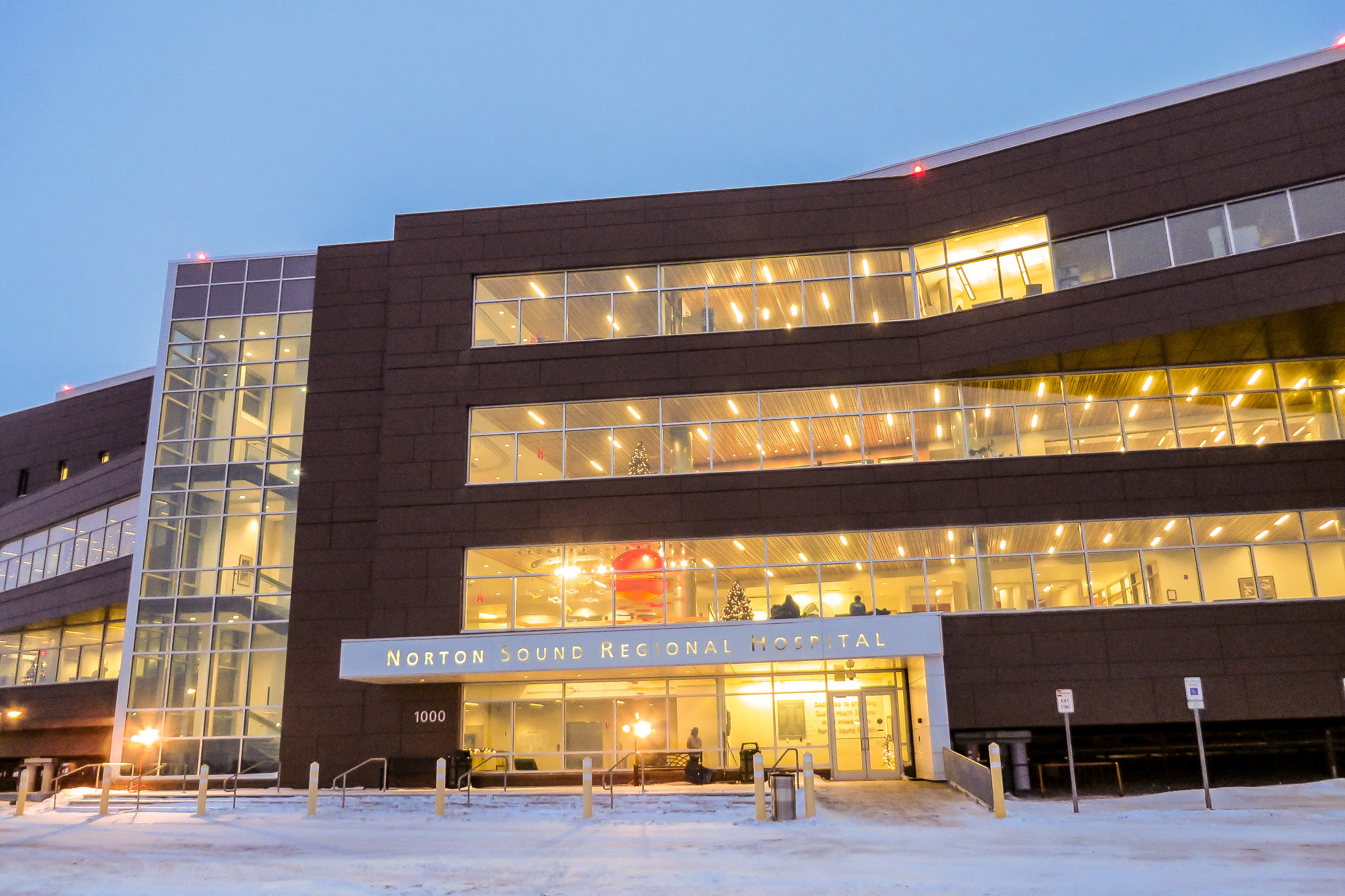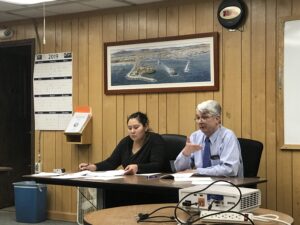The Norton Sound Health Corporation (NSHC) is getting more supplies and increasing its testing capabilities to help fight the potential spread of the coronavirus in the Norton Sound region.
Update:
Update: The Norton Sound Health Corporation announced in their daily newsletter that they received the supplies from Samaritan’s Purse on Thursday [4/9].
Original Story: In a press conference today with regional leadership, NSHC President Angie Gorn shared that Norton Sound is getting 1000 surgical masks, 5000 N-95 masks, 10 extra hospital beds, and assorted reusable disposable gloves and gowns. According to Megan Mackiernan, Director of NSHC Quality Improvement and Risk Management, those beds will stay in Nome for now. But the extra supplies will be dispersed throughout the region’s village clinics.
That shipment could arrive in Nome as early as this evening. Those supplies were donated from an organization called Samaritan’s Purse, which describes itself as an evangelical Christian aid organization.
But there are even more tools on the way for the region. The Alaska Native Tribal Health Consortium is giving NSHC an Abbott ID Now point of care test that would allow COVID-19 tests to be processed within minutes.
NSHC’s Medical Director Dr. Mark Peterson says that means tests done in Nome and the surrounding villages can be processed at the Nome hospital.
“What that allows for is much faster turn-around of testing so that when we do get a positive case, we can get ahold of those contacts right away and test all of them.”
By isolating those potentially exposed people, Peterson explains that the “extremely contagious” virus can be mitigated and contained more quickly.
And he shared that the Alaska Native Medical Center also now has large batch testing capabilities that can test up to 500 kits per day. If there were an extreme situation that required many people in one village to be tested, those could be sent there.
The Abbott ID Now equipment is only able to be set up in Nome, for now. Peterson told KNOM that it needs to be run in a laboratory by trained lab staff. During that point of care test the virus can be aerosolized, and technicians need specific equipment to contain those particulates.
Norton Sound clinicians will still only be testing patients who have confirmed symptoms of the disease caused by the coronavirus. As NSHC’s Mackiernan explains, the test will only be effective if there is enough of the virus present in a person’s nasal passage.
“Remember that the test is looking for a virus that is collected by that really long swab way back in the nose. Early in the disease the person may just not have enough “little viruses” in there to be detected on the machine and it’s possible that a person could come back later positive. It doesn’t mean the test was wrong. They just didn’t meet the threshold at that point in time.”
Those nose swab tests could show results for patients in Nome within a few minutes. Swabs would still have to be flown in from village clinics, but results could be available in less than 24 hours. Currently, those same tests have been taking about 4-5 days to process, from the time they are taken to the time results are ready at the lab in Fairbanks.
The Abbott ID Now rapid test equipment arrived in Nome today and that delivery came with the capacity to run 120 tests. Peterson hopes that NSHC can be running and processing results for COVID-19 tests at the hospital by Friday.
Image at top: Nome’s Norton Sound Regional Hospital. Photo: Laura Kraegel, KNOM.





